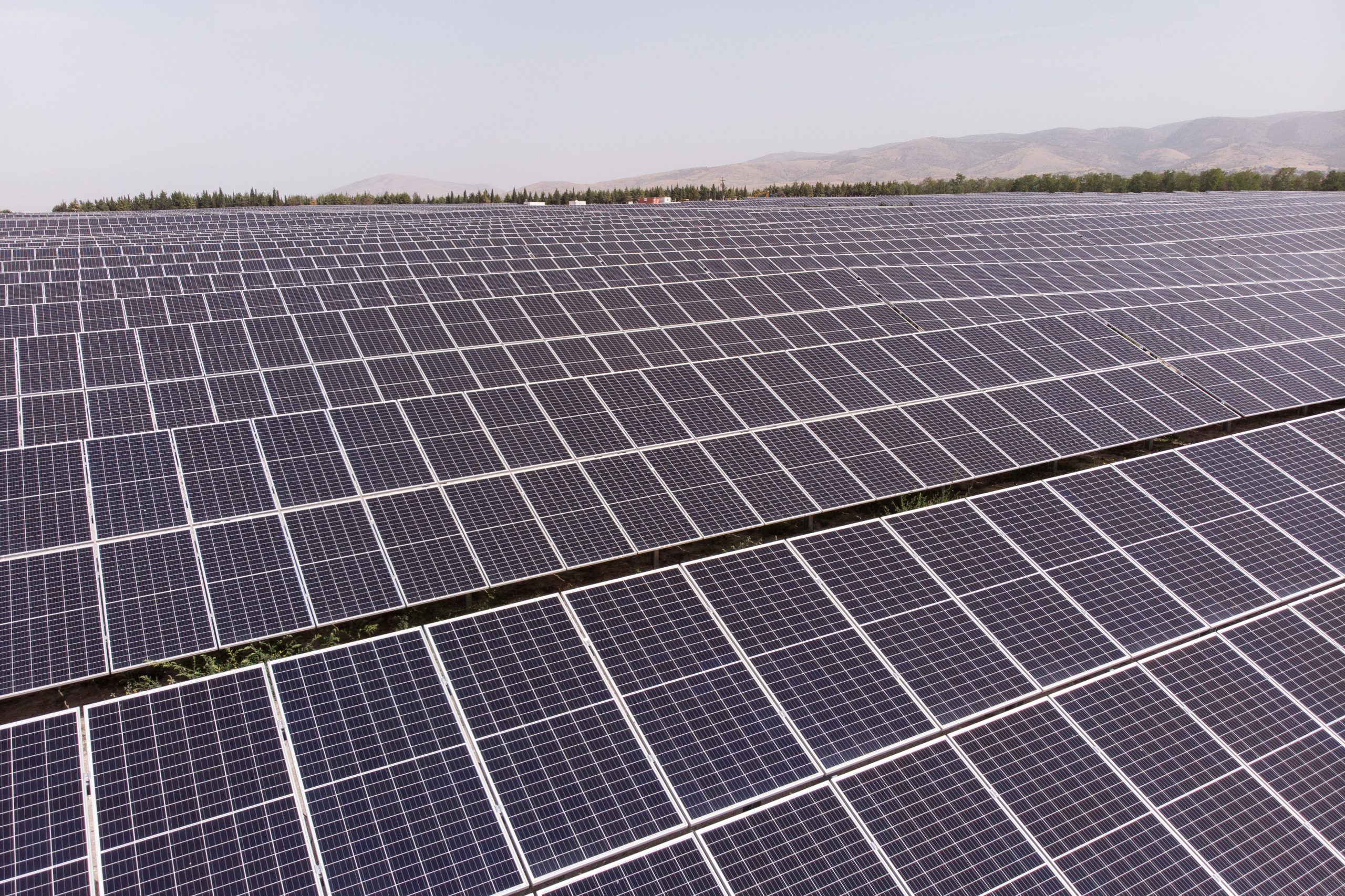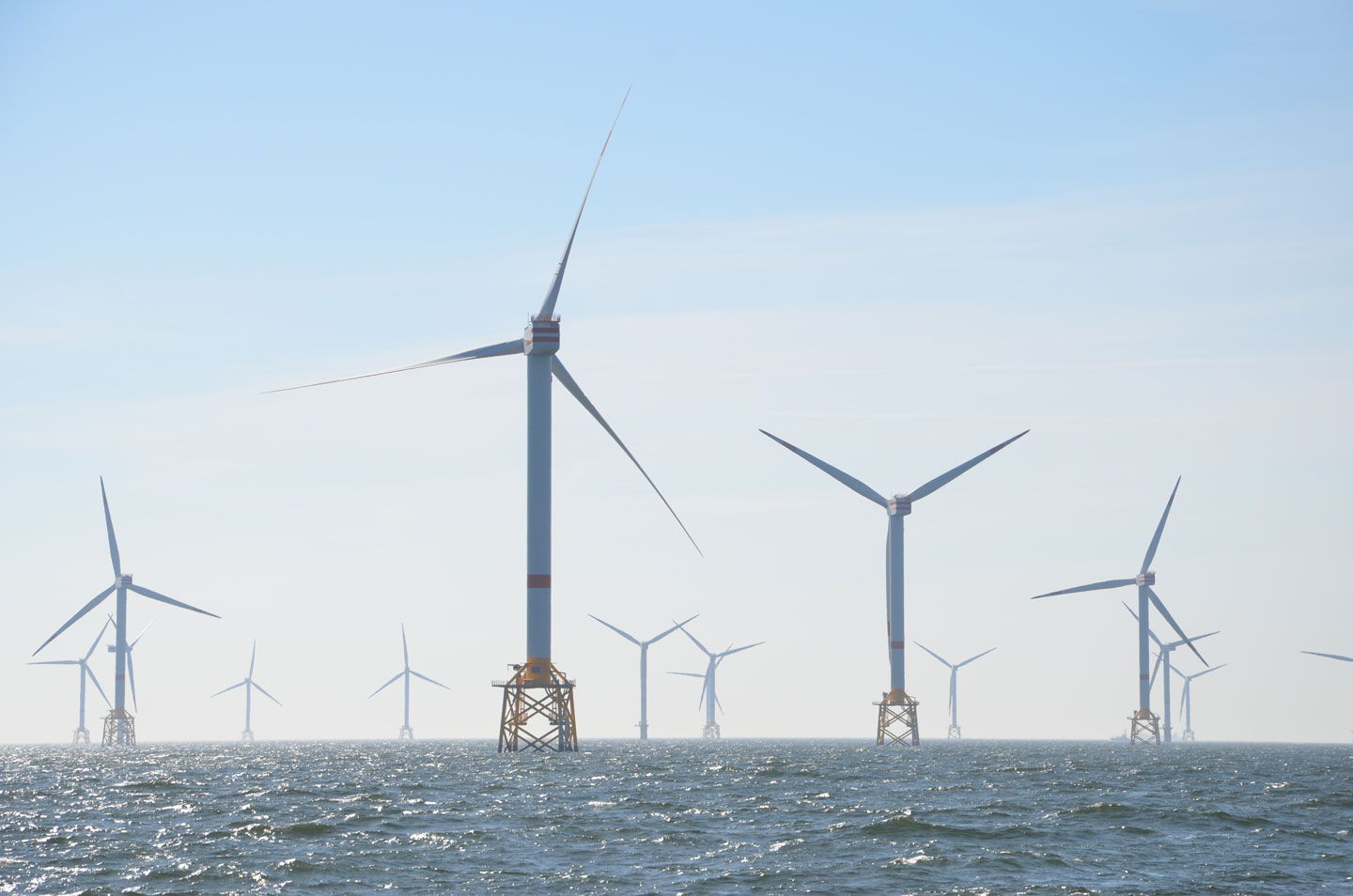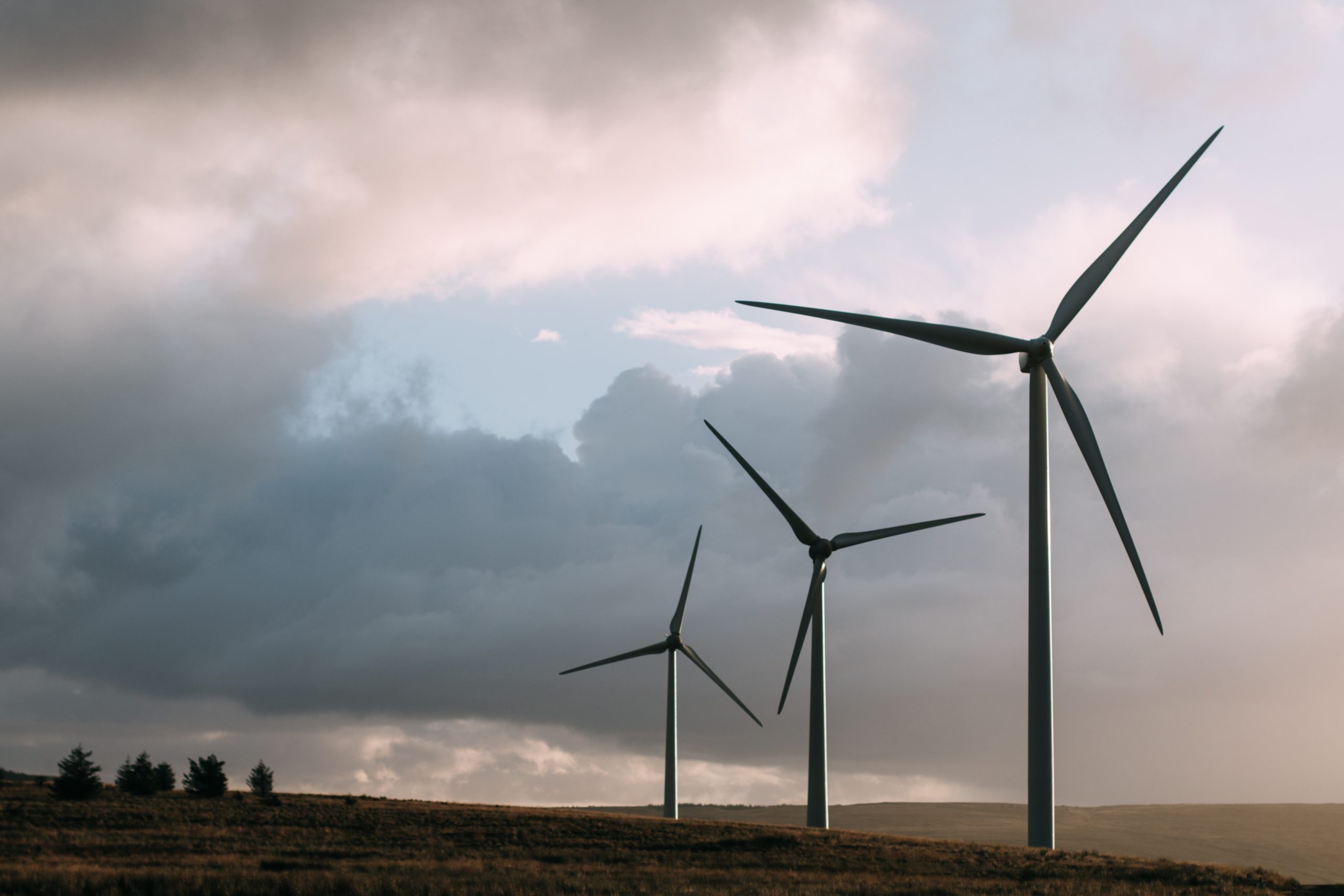Government 2035
Commitment Tracker
Assessing European government commitments
to transform their power sectors
Explore the map
We track commitments made by European governments to end their reliance on burning fossil fuels to produce electricity and shift to a fair and sustainable power system based on renewable energy.
Our tracker assesses political commitments made by governments based on their alignment with the need to phase out fossil fuels from the European power sector and replace them with renewables by 2035. Coal needs to be phased out by 2030.
This tool does not monitor or assess the implementation of these commitments.
Last update: March 2024
Click here to see our coal phase out commitment tracker.
About this tracker
Immediate action is needed
According to the International Energy Agency, Europe must remove all carbon emissions from its electricity sector by 2035 in order to align with its commitment to keep global temperature rise to 1.5°C.
This can only be achieved by replacing fossil fuels with renewable sources. This requires clear commitments from every European government as an immediate first step.
Lorem ipsum dolor sit amet, consectetur adipiscing elit. Nullam sit amet placerat mauris, vitae posuere odio. Donec feugiat vitae metus at vestibulum. Nam consequat orci accumsan nisi cursus dapibus. Phasellus ultrices ornare sem, nec rutrum purus vulputate quis. In id aliquam sem, sed commodo metus. Quisque a dolor nulla. Suspendisse ac lacinia purus. Lorem ipsum dolor sit amet, consectetur adipiscing elit. Nullam sit amet placerat mauris, vitae posuere odio. Donec feugiat vitae metus at vestibulum. Nam consequat orci accumsan nisi cursus dapibus. Phasellus ultrices ornare sem, nec rutrum purus vulputate quis. In id aliquam sem, sed commodo metus. Quisqu
Lorem ipsum dolor sit amet, consectetur adipiscing elit. Nullam sit amet placerat mauris, vitae posuere odio. Donec feugiat vitae metus at vestibulum.
Nam consequat orci accumsan nisi cursus dapibus. Phasellus ultrices ornare sem, nec rutrum purus vulputate quis. In id aliquam sem, sed commodo metus. Quisque a dolor nulla. Suspendisse ac lacinia purus.
Lorem ipsum dolor sit amet, consectetur adipiscing elit. Nullam sit amet placerat mauris, vitae posuere odio. Donec feugiat vitae metus at vestibulum.
Why is this important
Government commitments are essential because they send a clear political signal to energy companies, businesses and investors, to municipalities and to citizens about the future of a country’s power system.
Commitments help reduce the cost of capital, mobilise finance and give clarity about the lifetime of polluting assets, supporting a just and timely retirement.
When a government makes a pledge, it is considered official government policy. Governments should enshrine such commitments in national law to ensure they take full effect.
What needs to be done
We call on governments to enforce a complete phase out of fossil fuels from their power sectors by 2035 or earlier, with coal being phased out no later than 2030.
Coal and gas plants should be replaced by wind turbines, solar panels and other sources of sustainable and people-centred renewable energy, in conjunction with grids, storage and efficiency.
Plans to replace fossil fuels with new nuclear power plants are not considered credible because of nuclear’s extremely high capital cost and long project construction times.
While the Government 2035 Commitment tracker does not assess implementation plans, governments should ensure that the transition is done in a way that respects nature, addresses energy poverty and empowers consumers. It must be noted that an expansion of hydropower or bioenergy, or overreliance on renewable hydrogen cannot be considered sustainable or realistic.
Timeline of developments
This timeline tracks relevant developments in European government commitments on power sector transformation since 2021.

G7 members commit to fully or almost fully decarbonise their electricity systems by 2035.
Learn more
-
 ALBANIA: ALREADY FOSSIL-FREE
ALBANIA: ALREADY FOSSIL-FREEAlbania’s power system is already fossil-free.
Over 100% of Albania’’s electricity production is from renewable energy. Norway relies on hydropower for a large share of its renewable power, which comes with significant biodiversity concerns. The Norwegian government must accelerate the deployment of more sustainable sources of renewables, including wind and solar.
-
 AUSTRIA: ACCEPTABLE COMMITMENT
AUSTRIA: ACCEPTABLE COMMITMENTAustria has committed to produce 100% of its electricity from renewable sources by 2030.
In 2021, the Austrian government passed a law committing to meet 100% of its electricity demand with renewable energy by 2030. In 2023, Austria signed onto a joint Pentalateral Forum statement committing to the full decarbonisation of its power system by 2035, although this statement is not clear enough on if and when fossil fuels will be fully phased out. The 2021 law remains Austria’s actual legal framework.
Austria relies on hydropower for a large share of its renewable power, which comes with significant biodiversity concerns. Austria will need to resolve these issues as the country implements its commitment.
-
 BELGIUM: INSUFFICIENT COMMITMENT
BELGIUM: INSUFFICIENT COMMITMENTBelgium has made a 2035 commitment related to its power sector but this statement is insufficient.
In 2023, the Belgian government signed onto a joint Pentalateral Forum statement, committing to the full decarbonisation of its power system by 2035. However, the language of this statement is not clear enough on if and when fossil fuels will be fully phased out. Belgium is proposing to meet 48.5% of its electricity demand from renewable sources by 2030 in its draft national energy and climate plan (NECP). Current proposals do not exclude the construction of new nuclear power plants and include plans for unproven carbon capture storage and fossil hydrogen. Belgium is also building new gas power plants with no clear plan on how they will run without fossil gas after 2035.
Belgium will need to resolve these issues as part of firming up its commitments for a renewables-based power sector.
-
 BOSNIA AND HERZEGOVINA: NO COMMITMENT
BOSNIA AND HERZEGOVINA: NO COMMITMENTBosnia and Herzegovina has not committed to fully phase out fossil fuels from its power system and replace them with renewables by 2035.
The government of Bosnia and Herzegovina has not made a commitment to fully phase out fossil fuels from its power system and replace them with renewable energy by 2035, nor is this on the political agenda.
Bosnia and Herzegovina is proposing to meet 70.1% of its electricity demand from renewable sources by 2030 according to its draft national energy and climate plan (NECP), which would not put it on track to fully phase out fossil fuels and replace them with renewable sources by 2035.
-
 BULGARIA: NO COMMITMENT
BULGARIA: NO COMMITMENTBulgaria has not committed to fully phase out fossil fuels from its power system and replace them with renewables by 2035.
The Bulgarian government has not made a commitment to fully phase out fossil fuels from its power system and replace them with renewable energy by 2035, nor is this on the political agenda. Bulgaria is proposing to meet 42.2% of its electricity demand from renewable sources by 2030 according to its draft national energy and climate plan (NECP), which would not put it on track to fully phase out fossil fuels and replace them with renewable sources by 2035.
-
 CROATIA: NO COMMITMENT
CROATIA: NO COMMITMENTCroatia has not committed to fully phase out fossil fuels from its power system and replace them with renewables by 2035.
The Croatian government has not made a commitment to fully phase out fossil fuels from its power system and replace them with renewable energy by 2035, nor is this on the political agenda. The Croatian government has proposed a target to generate 74% of its electricity from renewables by 2030 as part of its draft national energy and climate plan (NECP) and phase out coal by 2033. This would not put it on track to fully phase out fossil fuels and replace them with renewable sources by 2035.
-
 CYPRUS: NO COMMITMENT
CYPRUS: NO COMMITMENTCyprus has not committed to fully phase out fossil fuels from its power system and replace them with renewables by 2035.
The Cypriot government has not made a commitment to fully phase out fossil fuels from its power system and replace them with renewable energy by 2035, nor is this on the political agenda. Cyprus is proposing to meet 31.5% of its electricity demand with renewable sources by 2030 in its draft national energy and climate plan (NECP). This would not put it on track to fully phase out fossil fuels and replace them with renewable sources by 2035.
-
 CZECH REPUBLIC: NO COMMITMENT
CZECH REPUBLIC: NO COMMITMENT The Czech Republic has not committed to fully phase out fossil fuels from its power system and replace them with renewables by 2035.
The Czech government has not made a commitment to fully phase out fossil fuels from its power system and replace them with renewable energy by 2035, nor is this on the political agenda. The Czech Republic has proposed unrealistic plans to build new nuclear power plants.
-
 DENMARK: ACCEPTABLE COMMITMENT
DENMARK: ACCEPTABLE COMMITMENTDenmark has committed to produce 100% of its electricity from renewable sources by 2030.
By 2030, Denmark will produce over 100% of its electricity from renewable sources, with more than 90% coming from wind and solar. In the same timeframe Denmark will more than double its total power generation, and turn from being a net-power importer to become a net exporter of renewable electricity.
-
 ESTONIA: UNDER DISCUSSION
ESTONIA: UNDER DISCUSSIONEstonia has committed to produce 100% of its electricity from renewable sources by 2030 but is discussing new nuclear projects.
The Estonian government has set in law a commitment to produce electricity from renewable sources equivalent to 100% of the country’s annual electricity consumption by 2030. However, the government has asked the Estonian parliament to vote later this year on an unrealistic proposal to build a small modular nuclear reactor (SMR) by 2030, which undermines the credibility of the commitment to a fossil-free, fully renewables-based electricity system.
-
 FINLAND: UNDER DISCUSSION
FINLAND: UNDER DISCUSSIONFinland is discussing the revision of its commitment related to the power sector.
The Finnish government has not made an explicit commitment to fully phase out fossil fuels from its power system and replace them with renewable energy by 2035. However, Finland has set a target for the country to be carbon neutral by 2035, including the power sector. The Finnish national energy and climate plan (NECP) draft proposes to meet 57% of the country’s electricity from renewables by 2030. The government announced it will publish its revised road map to decarbonise its power sector in 2024. However, the government is currently relying heavily on a voluntary phase out of fossil gas and peat from the electricity system and is pursuing unrealistic plans to build new nuclear power plants.
-
 FRANCE: INSUFFICIENT COMMITMENT
FRANCE: INSUFFICIENT COMMITMENTFrance has made a 2035 commitment related to its power sector but it is far from sufficient.
In 2023, the French government signed onto a joint Pentalateral Forum statement, committing to the full decarbonisation of its power system by 2035. However, this statement is not clear enough on if and when fossil fuels will be fully phased out. France also signed a G7 commitment in 2023 to fully or predominantly decarbonise its power sector by 2035 but this statement also has insufficiently clear language. France’s ambition to increase electricity demand massively by 2035 would require a very steep acceleration of renewables deployment and efficiency measures to remove all fossil fuels by 2035. Although France plans to accelerate the deployment of solar and offshore wind, it wrongly disregards onshore wind as a credible solution and keeps delaying plans to improve the efficiency of buildings. France has proposed unrealistic plans to build new nuclear power plants, and to rely on carbon capture storage and increased bioenergy in the power sector.
-
 GERMANY: INSUFFICIENT COMMITMENT
GERMANY: INSUFFICIENT COMMITMENTGermany has made a 2035 commitment related to its power sector but it is insufficient.
In 2023, the German government signed onto a joint Pentalateral Forum statement, committing to the full decarbonisation of its power system by 2035. However, this statement is not clear enough on if and when fossil fuels will be fully phased out. Germany also signed a G7 commitment in 2023 to fully or predominantly decarbonise its power sector by 2035 but this statement also has insufficiently clear language. Germany has proposed to generate 96% of its electricity with renewables by 2035 in its draft national energy and climate plan (NECP). However, it is moving ahead with the construction of at least 10GW (and up to 24GW) of new gas-fired power plants without robust plans for their phase out, while envisaging a problematic overreliance on green hydrogen, and without considering battery storage and demand flexibility as alternative capacity options. Germany will need to resolve these issues as the country firms up its commitments to transition to a renewables-based power sector by 2035.
-
 GREECE: INSUFFICIENT COMMITMENT
GREECE: INSUFFICIENT COMMITMENTGreece has made a 2035 commitment related to its power sector but it is insufficient.
The Greek government has proposed to significantly increase the share of renewables in its power system to 96.7% in 2035 and just under 99% in 2040 in its draft national energy and climate plan (NECP). This commitment puts Greece very close to being in line with a full fossil fuel phase out from its power sector by 2035, although it is also moving ahead with the construction of new gas-fired power plants. Greece has made progress expanding energy communities and residential solar projects, however quantitative targets are still lacking. Greece has expressed the intention of investing in problematic carbon capture storage, but no concrete plans have yet been published. Greece will need to resolve these issues as the country implements its transition to a renewables-based power sector by 2035.
-
 HUNGARY: NO COMMITMENT
HUNGARY: NO COMMITMENTHungary has not committed to fully phase out fossil fuels from its power system and replace them with renewables by 2035.
The Hungarian government has not made a commitment to fully phase out fossil fuels from its power system and replace them with renewable energy by 2035, nor is this on the political agenda. Hungary is building three new gas-fired power plants and has proposed unrealistic plans to construct a new nuclear plant. Hungary is proposing to meet 31% of its electricity demand with renewable sources by 2030 in its draft national energy and climate plan (NECP). This would not put it on track to fully phase out fossil fuels and replace them with renewable sources by 2035.
-
 IRELAND: UNDER DISCUSSION
IRELAND: UNDER DISCUSSIONIreland is discussing a possible 2035 commitment related to its power sector.
The Irish government has set a target to produce 80% of its power from renewables by 2030. However, it has plans to build a number of new gas plants with little clarity on how they would fit into a fully decarbonised power system. Government documents make reference to a “near net zero emissions power system” by 2035 but no official government position has been adopted on this. Although there is not yet an explicit policy commitment, the country’s climate law and legally binding carbon budget regime require the almost complete decarbonisation of the power sector by 2040 at the latest, including large-scale reduction in fossil gas demand for electricity production.
-
 ITALY: INSUFFICIENT COMMITMENT
ITALY: INSUFFICIENT COMMITMENTItaly has made a 2035 commitment related to its power sector but this commitment is insufficient.
The Italian government signed onto a G7 commitment in 2023 to fully or predominantly decarbonise its power sector by 2035. However, this statement is not strong enough, nor is it clear enough on if and when fossil fuels will be fully phased out. The Italian government has not moved to implement the G7 commitment in Italy. There are concerns that Italy’s proposed 2030 renewable electricity target of 65% (in its draft national energy and climate plan or NECP) is not in line with a 2035 fossil fuel phase out, and that Italy will continue to subsidise new gas power plants.
-
 KOSOVO: NO COMMITMENT
KOSOVO: NO COMMITMENTKosovo has not committed to fully phase out fossil fuels from its power system and replace them with renewables by 2035.
The government of Kosovo has not made a commitment to fully phase out fossil fuels from its power system and replace them with renewable energy by 2035, nor is this on the political agenda.
Coal currently provides 95% of Kosovo’s electricity. The Kosovan government has proposed to increase the share of renewables in its power system to 72% in 2040 in its draft national energy and climate plan (NECP). This pledge should be higher if it is to be in line with a phase out of fossil fuels from the power sector by 2035.
-
 LATVIA: NO COMMITMENT
LATVIA: NO COMMITMENTLatvia has not committed to fully phase out fossil fuels from its power system and replace them with renewables by 2035.
Latvia has not made a commitment to fully phase out fossil fuels from its power sector and replace them with renewable energy by 2035. The Latvian government has proposed to increase the share of renewables in its power system to 70% in 2030 draft national energy and climate plan. This pledge should be higher if it is to be in line with a phase out of fossil fuels from the power sector by 2035.
-
 LITHUANIA: ACCEPTABLE COMMITMENT
LITHUANIA: ACCEPTABLE COMMITMENTLithuania has committed to produce 100% of its electricity from renewable sources by 2030.
The Lithuanian government has committed to produce 100% of its electricity from renewable sources by 2030. This objective was approved by the Lithuanian parliament in December 2023.
-
 LUXEMBOURG: ACCEPTABLE COMMITMENT
LUXEMBOURG: ACCEPTABLE COMMITMENTLuxembourg has committed to produce 100% of its electricity from renewable sources by 2035.
The Luxembourg government has committed to produce 100% of its electricity from renewables by 2035. However, Luxembourg plans to finance renewable energy projects in other EU countries to meet a large share of this commitment, which could lead to insufficient renewable deployment in its national territory. In 2023, Luxembourg signed onto a joint Pentalateral Forum statement, committing to the full decarbonisation of its power system by 2035.
-
 MALTA: NO COMMITMENT
MALTA: NO COMMITMENTMalta has not committed to fully phase out fossil fuels from its power system and replace them with renewables by 2035.
The Maltese government has not made a commitment to fully phase out fossil fuels from its power system and replace them with renewable energy by 2035, nor is this on the political agenda.
-
 MOLDOVA: NO COMMITMENT
MOLDOVA: NO COMMITMENTMoldova has not committed to fully phase out fossil fuels from its power system and replace them with renewables by 2035.
The Moldovan government has not made a commitment to fully phase out fossil fuels from its power system and replace them with renewable energy by 2035, nor is this on the political agenda.
Moldova is proposing to meet 34.1% of its electricity demand with renewable sources by 2030 in its draft national energy and climate plan (NECP). This would not put it on track to fully phase out fossil fuels and replace them with renewable sources by 2035.
-
 MONTENEGRO: NO COMMITMENT
MONTENEGRO: NO COMMITMENTMontenegro has not committed to fully phase out fossil fuels from its power system and replace them with renewables by 2035.
The government of Montenegro has not made a commitment to fully phase out fossil fuels from its power system and replace them with renewable energy by 2035, nor is this on the political agenda.
Montenegro is planning to shut its coal plant by 2035 and with no fossil gas in its power mix, its electricity system could be in line to achieve 100% renewable electricity by 2035 if the new government adopts such a commitment.
-
 NETHERLANDS: INSUFFICIENT COMMITMENT
NETHERLANDS: INSUFFICIENT COMMITMENTThe Netherlands has made a 2035 commitment related to its power sector but it is insufficient.
In 2023, the Dutch government signed onto a joint Pentalateral Forum statement, committing to the full decarbonisation of its power system by 2035. However, this statement is not clear enough on if and when fossil fuels will be fully phased out. It has also committed to a ‘carbon-neutral’ power sector by 2035 but this commitment also is not clear enough on the future role of fossil fuels. The Netherlands is proposing to meet 86.2% of its electricity demand from renewable sources by 2030 in its draft national energy and climate plan (NECP). The Netherlands continues to build new gas power plants.
-
 NORTH MACEDONIA: NO COMMITMENT
NORTH MACEDONIA: NO COMMITMENTNorth Macedonia has not committed to fully phase out fossil fuels from its power system and replace them with renewables by 2035.
The government of North Macedonia has not made a commitment to fully phase out fossil fuels from its power system and replace them with renewable energy by 2035, nor is this on the political agenda.
North Macedonia plans to phase out coal by 2027. Plans to build new gas power plants and renewables are unclear as North Macedonia has not submitted an updated draft national energy and climate plan (NECP). Renewables are modelled to make up 80% of the country’s electricity system by 2040 in their most ambitious scenario, however this would not be enough to put it on track to fully phase out fossil fuels and replace them with renewable sources by 2035 if adopted as government policy.
-
 NORWAY: ALREADY FOSSIL-FREE
NORWAY: ALREADY FOSSIL-FREENorway’s power system is already fossil-free.
Over 99% of Norway’s electricity production is from renewable energy. Norway relies on hydropower for a large share of its renewable power, which comes with significant biodiversity concerns. The Norwegian government must accelerate the deployment of more sustainable sources of renewables, including wind and solar.
-
 POLAND: NO COMMITMENT
POLAND: NO COMMITMENTPoland has not committed to fully phase out fossil fuels from its power system and replace them with renewables by 2035.
The Polish government announced it will revise its national 2030 energy targets in 2024. This revision would need to address barriers to onshore wind and bring forward the coal phase out date from 2049 to 2030 to be in line with Europe’s climate targets. Poland continues to build new gas-fired power plants and has unrealistic plans to build new nuclear power plants.
-
 PORTUGAL: INSUFFICIENT COMMITMENT
PORTUGAL: INSUFFICIENT COMMITMENTPortugal has committed to produce 100% of its electricity from renewable sources by 2040, which is five years too late.
In 2022, the Portuguese government passed a law to ban the use of fossil fuels to produce electricity after 2040. The country has since announced its intention to to increase the share of renewables in its power system to 85% in 2030.
The fossil fuel ban would have to be advanced by five years to be in line with the need to phase out fossil fuels from the power sector by 2035.
-
 ROMANIA: INSUFFICIENT COMMITMENT
ROMANIA: INSUFFICIENT COMMITMENTRomania has made a commitment related to its power sector but it is insufficient.
The Romanian government has not made an explicit commitment to fully phase out fossil fuels from its power system and replace them with renewables by 2035. However, according to Romania’s Long-term Climate Strategy, which was approved by the Romanian government in December 2023, Romania’s power system should be fossil fuel free by 2036. This scenario includes replacing gas with hydrogen and ‘low emission fuels’, which raises questions of credibility and sustainability. In its draft national energy and climate plan (NECP), the Romanian government has proposed to meet 55.8% of its electricity demand from renewable sources by 2030. This figure should be higher to support the phase out of fossil gas on schedule and without relying on unsustainable alternative fuels. Romania continues to pursue unrealistic plans to build new nuclear power plants.
-
 SERBIA: NO COMMITMENT
SERBIA: NO COMMITMENTSerbia has not committed to fully phase out fossil fuels from its power system and replace them with renewables by 2035.
The Serbian government has not made a commitment to fully phase out fossil fuels from its power system and replace them with renewable energy by 2035, nor is this on the political agenda.
The Serbian government has proposed a target to generate 45% of its electricity from renewables by 2030 as part of its draft national energy and climate plan (NECP) and plans to continue using fossil gas beyond 2050. This would not put it on track to fully phase out fossil fuels and replace them with renewable sources by 2035.
-
 SLOVAKIA: NO COMMITMENT
SLOVAKIA: NO COMMITMENTSlovakia has not committed to fully phase out fossil fuels from its power system and replace them with renewables by 2035
The Slovakian government has not made a commitment to fully phase out fossil fuels from its power system and replace them with renewable energy by 2035, nor is this on the political agenda.
The Slovakian government has proposed a target to generate 29.5% of its electricity from renewables by 2030 as part of its draft national energy and climate plan (NECP) and phase out coal by 2033. This would not put it on track to fully phase out fossil fuels and replace them with renewable sources by 2035.
-
 SLOVENIA: NO COMMITMENT
SLOVENIA: NO COMMITMENTSlovenia has not committed to fully phase out fossil fuels from its power system and replace them with renewables by 2035.
The Slovenian government has not made a commitment to fully phase out fossil fuels from its power system and replace them with renewable energy by 2035, nor is this on the political agenda.
The Slovenian government has proposed a target to generate 52.3% of its electricity from renewables by 2030 as part of its draft national energy and climate plan (NECP) and phase out coal by 2033. This would not put it on track to fully phase out fossil fuels and replace them with renewable sources by 2035.
-
 SPAIN: NO COMMITMENT
SPAIN: NO COMMITMENTSpain has not committed to fully phase out fossil fuels from its power system and replace them with renewables by 2035.
The Spanish government has not made an explicit commitment to fully phase out fossil fuels from its power system and replace them with renewable energy by 2035. However, it has included in its draft national energy and climate plan (NECP) the aim to produce 81% of its electricity from renewables by 2030. The same draft NECP brings forward the coal phase out from 2030 to 2025. There is no planned decline in gas-fired power plant capacity between now and 2030. In fact, there are plans to build new gas capacity by converting the Aboño coal plant. In order to achieve a transition to a power system based on 100% renewable electricity by 2035, Spain must set a target to phase out gas-fired power plants by 2035 at the latest.
-
 SWEDEN: INSUFFICIENT COMMITMENT
SWEDEN: INSUFFICIENT COMMITMENTSweden has made a commitment related to its power sector but it is insufficient.
In 2017, the Swedish government committed to produce 100% of its electricity from renewable energy by 2040. However, in 2023 the government changed this target to 100% fossil-free electricity and announced unrealistic plans to build new nuclear power plants and to decrease the share of renewable energy in its power system.
-
 SWITZERLAND: ACCEPTABLE COMMITMENT
SWITZERLAND: ACCEPTABLE COMMITMENTSwitzerland has committed to produce 100% of its electricity from renewable sources by 2026.
The Swiss government has passed a law enshrining the target of reaching 100% renewable electricity by 2026. However, a referendum to repeal this law is due in June 2024.
-
 TÜRKIYE: NO COMMITMENT
TÜRKIYE: NO COMMITMENTTürkiye has not committed to fully phase out fossil fuels from its power system and replace them with renewables by 2035.
The Turkish government has not made a commitment to fully phase out fossil fuels from its power system and replace them with renewable energy by 2035, nor is this on the political agenda. Despite a commitment to achieve net zero emissions by 2053, the Turkish National Energy Plan only sees the share of renewables in electricity generation reaching 54.7% by 2035, and includes plans to build 1.7 GW of new coal-fired power plants and 10 GW of new gas-fired power plants by 2035.
-
 UNITED KINGDOM: INSUFFICIENT COMMITMENT
UNITED KINGDOM: INSUFFICIENT COMMITMENTThe United Kingdom has made a 2035 commitment related to its power sector but it is insufficient.
In 2021, the UK government committed to decarbonise its power sector by 2035, however the commitment has not been followed up with a credible delivery plan. The UK also signed a G7 commitment in 2023 to fully or predominantly decarbonise its power sector by 2035. However, this statement is not strong enough, nor is it clear enough on if and when fossil fuels will be fully phased out. The UK government continues to pursue unrealistic plans to build new nuclear power plants, and foresees an ongoing role for biomass, which is likely to be relied upon to provide ‘negative emissions’ towards 2050.
The UK will need to resolve these issues as part of firming up its commitments for a renewables-based power sector.
-
 UKRAINE: NO COMMITMENT
UKRAINE: NO COMMITMENTUkraine has not committed to fully phase out fossil fuels from its power system and replace them with renewables by 2035.
The Ukrainian government has not made a commitment to fully phase out fossil fuels from its power system and replace them with renewable energy by 2035, nor is this on the political agenda. The government approved a new energy strategy in 2023 but it has not yet been published. According to its draft national energy and climate plan (NECP), Ukraine is proposing to meet 25.4% of its electricity from renewables by 2030. Ukraine continues to pursue unrealistic plans to build new nuclear power plants.
Methodology
Last update: March 2024
The methodology used for the Government 2035 Commitment tracker assesses if a government's commitment includes a full phase out of fossil fuels from the power sector, to be replaced with renewable energy. It also considers the timeline of a commitment, namely if the commitment is to be achieved by 2035 or earlier, or if it is later than 2035. Finally, the methodology considers whether a commitment has enough political backing to be considered credible, meaning it is either set in national law or has been adopted as official government policy.
The tracker does not assess the existence or credibility of any plans to implement government commitments, nor does it assess progress towards achieving these commitments.
The following tools provide more information and analysis of European government energy transition plans:
CAN Europe: Together For 1.5C NECPs Tracker Tool
Ember: Live EU NECP tracker
To see our coal phase out commitment tracker, click here.








